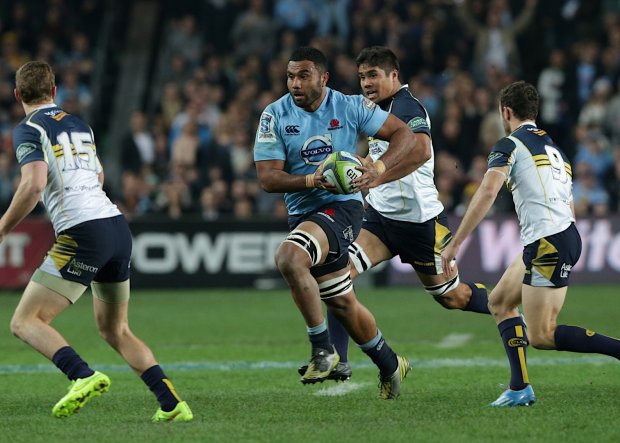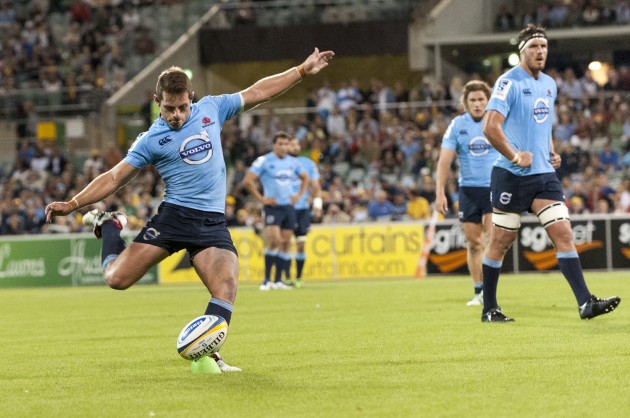Sixteen regular season matches played. Semi-finals done. And here we are again: a Waratahs v Crusaders Super Rugby final. The same teams fought it out in 2005 (with the Saders winning 35-25) and in 2008 (the same winner, this time 20-12). But what does more recent form, style, and results suggest for this Saturday?
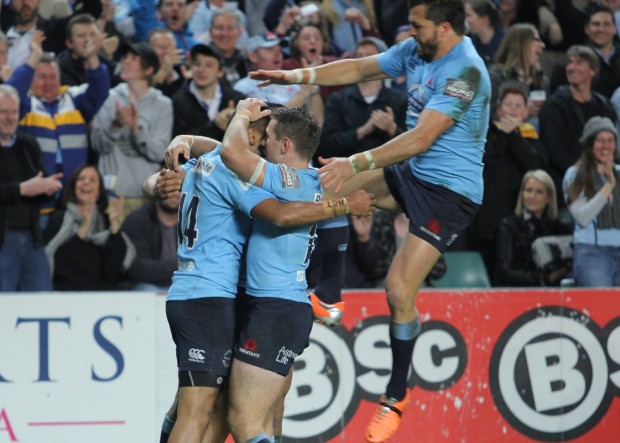
For me, this is the Tahs’ game to lose. They’re at home. 22 of the last 25 Super Rugby finals matches have been won by the home team, while the last time an away side won the final was when the Bulls scored in the final seconds to down the Sharks in Durban back in 2007. The Cab Sav and Meat Pie crew will be raucously behind the Tahs.
More importantly, the Tahs’ game plan insists on seizing the initiative. This eagerness to dictate the pace and style of the game forces other teams to adapt – which they have usually done poorly. (By contrast, the South African teams – and in recent times the Brumbies – too often consciously look to cede initiative to the opponent and force them into mistakes.)
Finally, the results speak for themselves. Twelve wins from sixteen in the regular season. Most points scored. Most tries scored. Fewest points conceded. Second fewest tries conceded. History does not gainsay such stats. If the Tahs play reasonably well and dictate the pace of the game, they’ll win.
So where do the Tahs need to shore up their game?
1) Game Management
While the Tahs will undoubtedly be looking to continue their physical, front-foot defensive style, they need to watch their discipline. If we look closely at the stats, the Crusaders scored 445 points in the regular season – second in the comp. But they only scored 41 tries, a middling 7th in the comp.
The lesson is clear: for all the Crusaders’ famed try-scoring prowess, they actually weren’t brilliant at getting the ball across the line and consistently opted to take the points when on offer. The Tahs need to back themselves to hold the red and black out, instead of conceding kickable penalties. And, as always when playing Kiwi teams, they need to play smart rugby, above all.
The Crusaders have conceded only 146 penalties this year to the Tahs 179. Craig Joubert is short odds to ref the final. His black letter law style will punish any team looking to slow down the game – with cards as well as penalties. Ten minutes playing a man down could be the difference.
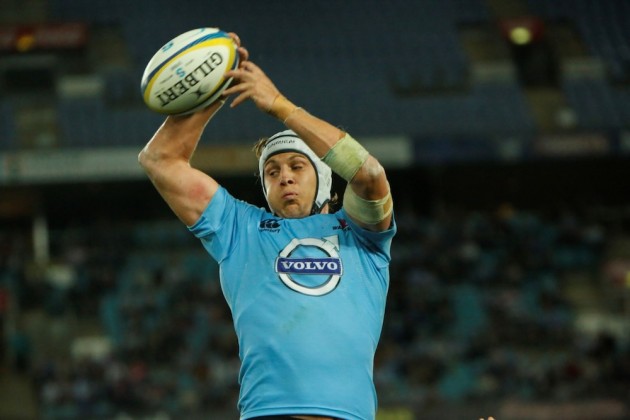
2) The Lineout
Let’s not beat about the bush: the Tahs lineout has been poor all year, and shocking since Dave Dennis’ unfortunate injury. It’s an indictment of the coaching staff that the team relied so heavily on Dennis as a caller and failed to train others in this role for just such an eventuality. It may cost the Tahs the title: the Crusaders have one of the best lineouts, both on offence and defence, in the competition.
The stats are telling: the Tahs have won 82.6% of their own lineout ball (10th in the comp) versus 88.6% for the Crusaders (3rd). But the numbers obscure an even worse picture. They don’t show that the Tahs have been forced to go to 5 man lineouts to help secure possession, that the ball they win is often messy, and that they have struggled to use lineouts as a reliable attacking platform for backs moves as a result.
The question for the Tahs is where to now. Do they bring in Mitchell Chapman, a journeyman if ever there was one, just to run the lineout, at the expense of the better rounded Stephen Hoiles? Who do they throw to, given that none of Kane Douglas, Jacques Potgieter, Hoiles, Will Skelton, or Cliffy Palu is a 1 or even 2 jumper? How do they contain an opposition lineout with three top flight options (Dominic Bird, Sam Whitelock, and Kieran Read), plus Richie McCaw and Matt Todd? Do they just not contest?
These are not the questions you want to be asking yourself a few days out from the final: they should have been resoundingly answered much earlier in the year. Especially with a hot and cold scrum to boot.
3) Gotta kick your goals
Goal kicking is key: just ask Ben Mowen, who repeatedly turned down what would have been very kickable penalties for the 2013 vintage of Christian Lealiifano last weekend. The score could have looked very different at half time if the Brumbies had a better kicker.
There’s little doubt that both Dan Carter and Colin Slade are (over the long run) better kickers than Bernard Foley, who is still vulnerable to missing real sitters. While Foley has kicked at 77.6% this year (versus 78.7 for Slade), Goalkickers.co.za still has him at a disappointing 23rd out of all regular kickers this year (versus Slade at 17th). It may all come down to whether the Tahs can rely on Kurtley Beale to kick from over 40 metres.
4) Out wide
You can be confident that the Crusaders will be working on plays to bring Israel Dagg, Kieran Read, and Nemani Nadolo down the Crusaders’ left flank. Even the best defences have struggled with Dagg’s step and Read’s offloading out wide over the last few years. And Alofa Alofa is not the best defender, but instead often seems to have a case of the Joe Tomane’s: instead of coming in, or staying out, he ultimately doesn’t have the confidence or experience to make the call either way and secure an effective result. I don’t like the Nadolo-Alofa match up one bit.
What is interesting is how lateral the Crusaders have been this year. They don’t rely heavily on complex plays, or inside balls; they just shift it side-to-side, keeping the ball, and waiting for the missed tackle. This should suit the Tahs’ “in your face” style of defence – if individuals make their tackles and if the wingers get their reads right.
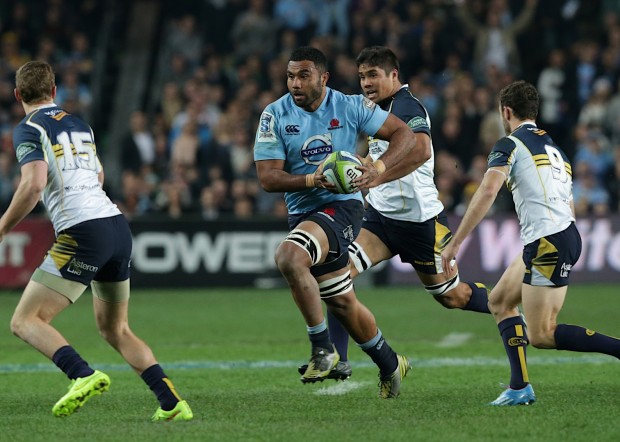
5) Leadership
The first twenty minutes of the Tahs-Brumbies semi-final were very revealing. The Tahs looked gun shy. Where were the big forward runners? Who was volunteering to cart the ball up? In his fifty-five minutes of football, Kane Douglas made one run, four tackles, and conceded two penalties. In close to eighty minutes, Stephen Hoiles made one run and seven tackles. Sekope Kepu made one run and eight tackles.
Instead, the load in rebooting the attack fell to Michael “Crazy Eyes” Hooper (7 runs), Palu (13 runs), and Benn Robinson (6 runs). Stats don’t tell you everything, but the former guys need to step up, big time. They are, in effect, veterans in the team and need to lead by example.

